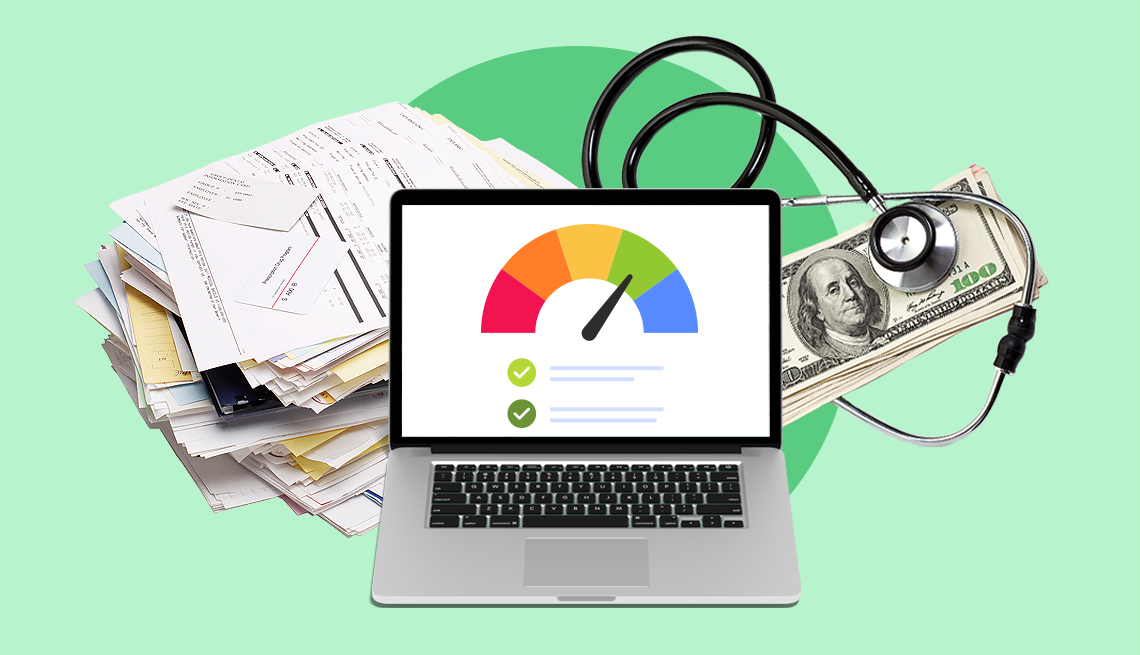
New federal ruling bans medical debt from credit reports
- Select a language for the TTS:
- UK English Female
- UK English Male
- US English Female
- US English Male
- Australian Female
- Australian Male
- Language selected: (auto detect) - EN
Play all audios:

Unpaid medical bills will no longer appear on credit reports, per a new federal rule, marking a major win for consumers. On Jan. 7, the Consumer Financial Protection Bureau (CFPB) finalized
a rule that will require removal of roughly $49 billion in unpaid medical debt from the credit reports of about 15 million Americans. Under the new regulation, credit reports can no longer
include past-due medical bills, prohibiting lenders from using medical information in their lending decisions — putting an end to a practice that has unfairly targeted millions of
Americans, according to the CFPB. AARP backed the rule on the basis that medical debt is a unique type of debt — one that people do not choose to take on — and because research shows unpaid
medical bills are not a good predictor of someone’s creditworthiness. Further, many consumers have found medical billing inaccuracies on their credit reports. “People who get sick shouldn’t
have their financial future upended,” Rohit Chopra, the watchdog agency's director, said in an announcement. “The CFPB’s final rule will close a special carveout that has allowed debt
collectors to abuse the credit reporting system to coerce people into paying medical bills they may not even owe.” Moreover, Americans with medical debt on their credit reports could see
their credit scores increase by an average of 20 points, the CFPB says. LEARN HOW AARP IS FIGHTING FOR YOU AARP is your fierce defender on the issues that matter to people 50-plus. Read more
about how we fight for you every day in Congress and across the country. AARP submitted a comment letter in support of the rule shortly after the CFPB proposed it in June 2024. In the
letter to Chopra, AARP legislative counsel and legislative policy director David Certner wrote, "Medical debt is unique due to its unpredictable nature, which is outside the control of
the consumer and exacerbated by medical billing errors and the complexities of insurance coverage and reimbursement. Older Americans frequently find themselves subject to aggressive and
deceptive medical debt-collection strategies that take an emotional toll." The new rule will likely draw opposition from credit-reporting agencies, which criticized the idea when the
CFPB proposed it in 2023. Unlike other types of borrowing, medical debt is often the result of an unexpected illness or accident. “The new rule will help ensure that older Americans can
focus on recovering from illness and injury rather than worrying about debt collectors and how medical debt can negatively impact their credit score and financial security," he says.
Older adults on Medicare are not immune from unpaid medical bills, since coverage gaps can lead to surprise out-of-pocket costs, Certner adds. A 2022 KFF survey found 22 percent of
Americans 65 and older had medical debt. In addition to the exclusion of medical debt from credit reports, AARP has called for “a robust appeal process” for consumers whose medical debt
information is shared with creditors. Learn more about how AARP is fighting to protect the financial security of people 50 and older. JOIN OUR FIGHT FOR FINANCIAL SECURITY Sign up to
become an AARP activist on consumer protection and other issues important to people 50 and older. Consumers can submit credit reporting complaints by visiting the CFPB’s website or calling
855-411-CFPB. _Former AARP writer Natalie Missakian contributed to this story. _
